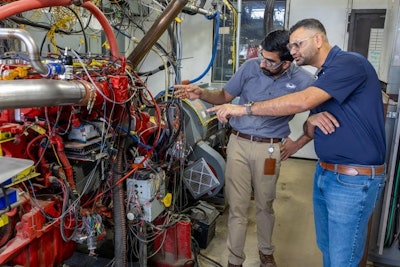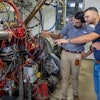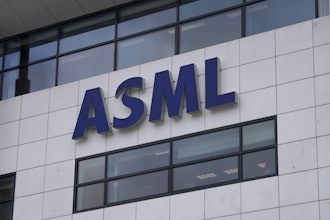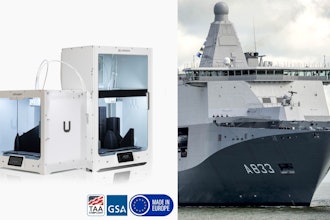
SAN ANTONIO — Southwest Research Institute (SwRI) and The University of Texas at San Antonio (UT San Antonio) are collaborating to create a detection system to identify pre-ignition in hydrogen internal combustion engines (H2-ICE). Researchers will combine machine learning (ML) algorithms and artificial intelligence with onboard sensors to help detect pre-ignitions based on their tell-tale signs.
Pre-ignition occurs when unprompted combustion happens inside an engine before the prescribed spark timing. These abnormal, uncontrolled and random combustion events can degrade engine performance and compromise its mechanical integrity. Hydrogen-powered internal combustion engines are prone to pre-ignitions because of hydrogen’s very low threshold for ignition.
Dr. Abdullah U. Bajwa, a research engineer with SwRI’s Powertrain Engineering Division said, “Many of the same reasons that hydrogen is such an attractive, clean alternative to traditional fuels make it more prone to pre-ignition. Hydrogen is more flammable and can ignite very easily.”
According to Bajwa, variables such as engine surface and air temperatures, residual gases, and oil droplets may contribute to hydrogen pre-ignition. This makes the phenomena hard to isolate and control and needs to be addressed for the wide-scale adoption of hydrogen fuel in internal combustion engines.
The Connect project brings together a multidisciplinary team of experts in hydrogen engine technology, machine learning and real-time diagnostic systems. Bajwa, SwRI Manager Ryan Williams and SwRI Lead Engineer Vickey Kalaskar will work with Dr. Yuanxiong Guo, associate professor in the UT San Antonio College of AI, Cyber and Computing, and Dr. Yanmin Gong, associate professor in the university’s Klesse College of Engineering and Integrated Design. Together, they will lead a team to solve the issues associated with H2-ICE pre-ignition.
The team is developing methods to detect pre-ignitions in real-time. The researchers will first use laboratory-grade sensors to obtain engine cylinder pressure data to identify normal and abnormal combustion events. After the cycling data has been obtained, the team will use machine learning to identify signatures for the pre-ignition and normal cycles. This information will be used to create pre-ignition detection AI models that use data from cost-effective, commercially available production sensors.
“This project introduces advanced machine learning tools that will complement SwRI’s traditional signal processing approaches in ICE research,” Bajwa said. “It also provides the university team with an exciting new application domain in real-time H₂ combustion system diagnostics. Together, we will be able to share our respective knowledge and resources with one another to potentially help solve an important H2-ICE challenge.”
The work is supported by a $125,000 grant from the Connecting through Research Partnerships (Connect) program. The team will include SwRI staff and UT San Antonio students, and the project will run through Sept. 30, 2026.
"UT San Antonio is proud to collaborate with SwRI to advance AI research that addresses pressing real-world challenges," Guo said. "By applying AI to pre-ignition detection in hydrogen engines, we aim to accelerate innovation in sustainable energy and transportation while providing opportunities for our students to help shape the future of clean technologies.
SwRI has been spearheading efforts to develop H2-ICE for industry use through its many consortia, such as Clean Highly Efficient Decarbonized Engines (CHEDE-9) and H₂-ICE. These efforts have led to advancements in H₂-ICE systems research and other successes, like SwRI’s fully functional H2-ICE Class-8 truck.






















